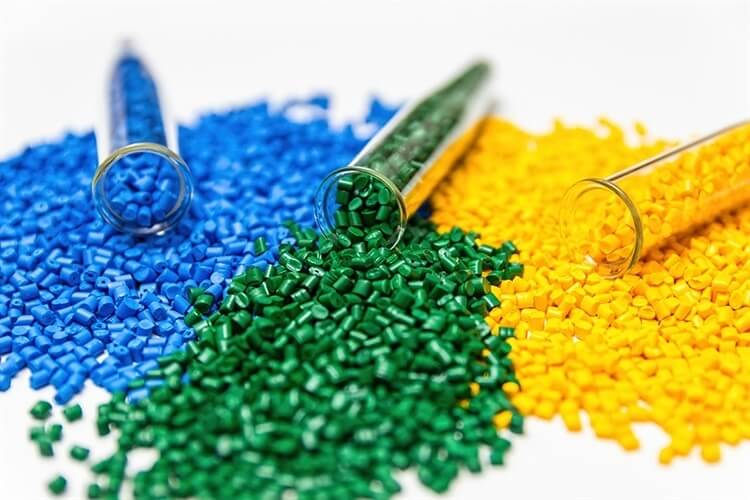Top Uses of Polymers: Enhancing Everyday Products
Top Uses of Polymers: Enhancing Everyday Products
Blog Article
Exploring the Varied Applications and Benefits of Polymers in Different Industries
Polymers, with their varied variety of residential properties and performances, have ended up being indispensable in numerous markets, each reaping distinct advantages from their application. From enhancing safety and security and efficiency in the automotive field to changing medical devices in the medical care market, polymers play a pivotal function.
Automotive Sector Applications
Polymers play an essential role in boosting the performance and durability of different components within the automobile field. These functional materials are extensively used in the production of various components, ranging from indoor parts to under-the-hood applications. One popular usage of polymers in the automotive market remains in the production of lightweight elements. By changing traditional metal components with polymer-based choices, cars can attain enhanced fuel effectiveness without jeopardizing on toughness or security.

Medical Care Sector Benefits
In numerous health care applications, the benefits of using polymers are extensively identified for their varied variety of beneficial residential properties. Polymers play a crucial function in the health care industry due to their flexibility, biocompatibility, and cost-effectiveness. Among the main advantages of polymers in health care is their capability to be tailored to specific requirements, such as versatility, toughness, and biodegradability, making them suitable for a variety of medical applications.
Polymer-based materials are extensively made use of in clinical gadgets, such as catheters, implants, prosthetics, and medication shipment systems, due to their biocompatibility and ability to resemble all-natural cells. These materials can reduce the threat of sensitive reactions or rejections, enhancing patient safety and security and results. Furthermore, polymers are lightweight, making them ideal for wearable medical devices and ensuring person convenience.
In addition, polymers allow the growth of ingenious treatment techniques, such as hydrogels for cells engineering and nanocomposites for targeted medicine delivery. Their simplicity of handling and sanitation makes them important for keeping high requirements of health in healthcare settings. On the whole, the diverse benefits of polymers contribute substantially to advancements in medical modern technology and patient care.
Ecological Advantages of Polymers
:max_bytes(150000):strip_icc()/three-dimensional-model-of-polyvinyl-chloride-165874889-5c425ea7c9e77c000188be6d.jpg)
Moreover, polymers can add to energy savings because of their lightweight nature. In markets such as transport, light-weight polymer products can help in reducing fuel usage and greenhouse gas discharges. Furthermore, polymers can make it possible for the development of energy-efficient products such as insulation materials that enhance energy conservation in buildings.
Additionally, polymers play a crucial duty in decreasing water contamination. The usage of polymer-based filtering systems can efficiently remove contaminants and pollutants from wastewater, protecting water resources and communities. Overall, the environmental benefits of polymers make them beneficial properties in Read Full Article promoting sustainability and green methods across numerous industries.
Polymers in Electronics and Modern Technology
Taking into consideration the boosting demand for cutting-edge and lasting options in contemporary industries, the integration of sophisticated polymer innovations in the realm of electronic devices and modern technology has actually emerged as a pivotal approach for driving effectiveness and performance. Polymers have actually reinvented the electronics sector by allowing the production of lighter, a lot more versatile, and durable digital devices. From smart devices to medical tools, polymers play a critical function in enhancing product layout and performance.
One significant benefit of polymers in electronics is their protecting residential properties, which help secure delicate electronic components from ecological factors and electrical disturbance. Additionally, polymers are necessary in the development of flexible screens, wearable innovation, and printed electronics, supplying endless opportunities for developing smart and interconnected tools.
Furthermore, the usage of polymers in digital packaging has caused advancements in miniaturization and thermal monitoring, improving the general efficiency and integrity of electronic systems. As technology remains to advance, the adaptability and adaptability of polymers will definitely drive better innovation in the electronics market, shaping the future of innovation.
Duty of Polymers in Building and Framework
The integration of advanced polymer materials in building and facilities jobs has reinvented the method structures are created and constructed in modern-day times. Polymers use countless advantages in the building and construction sector due to their adaptability, resilience, and cost-effectiveness. One visit our website essential duty about his of polymers in building is their usage in finishes and sealers, supplying protection against environmental elements such as moisture, UV radiation, and corrosion. Additionally, polymers are made use of in the production of lightweight and high-strength composite products, boosting the architectural integrity of buildings while lowering total weight.
Furthermore, polymers play an important role in lasting construction techniques by allowing the development of energy-efficient frameworks. Insulating products made from polymers assist regulate indoor temperature levels, minimizing the need for home heating and cooling systems and inevitably reducing power consumption. In addition, using polymer-based compounds in infrastructure tasks such as bridges and roadways improves their long life and decreases upkeep costs. Generally, the incorporation of polymers in building and infrastructure showcases their substantial impact on contemporary design techniques.
Final Thought
Finally, polymers play an essential role in different markets such as vehicle, healthcare, environmental, electronics, and building. Their flexible residential properties make them beneficial in developing cutting-edge services and products. From enhancing fuel efficiency in cars to enhancing medical devices, polymers offer various benefits. In addition, their effect on minimizing waste and promoting sustainability highlights their value in modern-day applications. The extensive use polymers demonstrates their significant payment to progressing innovation and enhancing high quality of life.
Report this page